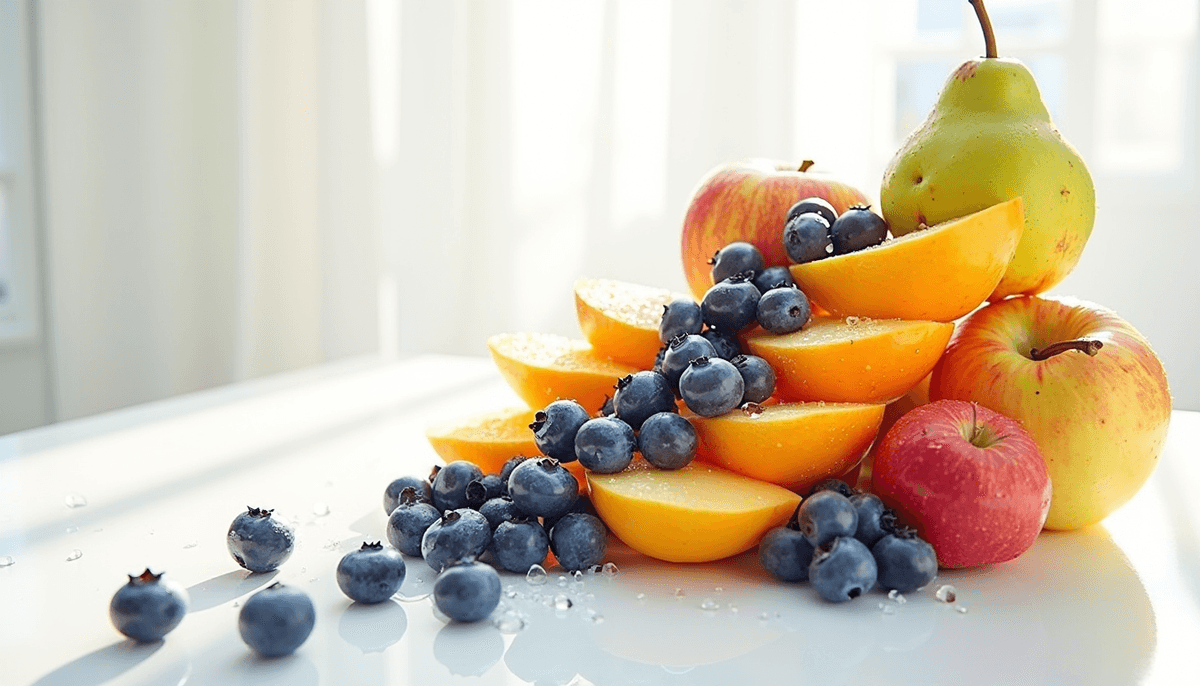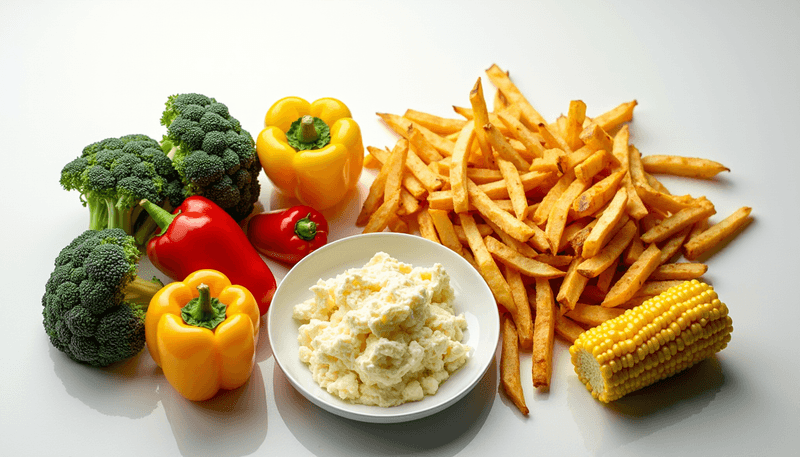Fruits Power Weight Loss For Women

The battle of the bulge has a surprising ally - fresh fruits and vegetables. But not all produce is created equal when it comes to supporting healthy weight in women. A groundbreaking review of multiple studies reveals specific fruits and vegetables have unique powers to help women achieve and maintain a healthy weight, while others might actually work against weight loss goals.
Power Players: The Best Fruits for Weight Loss
The research highlights specific fruits that stand out as weight loss champions. Blueberries lead the pack, helping women lose up to 0.7 kg over four years per daily serving. Apples and pears follow closely, supporting a loss of 0.39 kg. What makes these fruits special? Their secret lies in three key factors:
-
Low Energy Density: These fruits contain high amounts of water and fiber relative to their calories. Think of energy density like the efficiency of a car - fruits with low energy density give you more volume of food for fewer "fuel points" (calories).
-
Fiber Content: The fiber in whole fruits acts like a natural brake system, slowing down eating speed and keeping you feeling full longer. A medium apple provides about 4.5 grams of fiber - that's nearly 20% of your daily needs!
-
Low Glycemic Load: Unlike processed snacks that cause rapid blood sugar spikes, these fruits release energy slowly, helping maintain stable blood sugar levels.
"What if you replaced your afternoon cookie with an apple or handful of berries? How might that small change impact your weight over time?"
Smart Vegetable Choices Matter
Not all vegetables bring the same benefits to the weight loss table. The research reveals some surprising findings about vegetable selection:
Weight Loss Champions:
- Broccoli (-0.37 kg per serving)
- Bell peppers (-0.32 kg)
- Summer squash (-0.31 kg)
- Cauliflower (-0.21 kg)
Weight Gain Contributors:
- French fries (+1.65 kg)
- Boiled/mashed potatoes (+0.35 kg)
- Sweet corn (modest increase)
The difference lies in the starch content and preparation method. Non-starchy vegetables provide more bulk with fewer calories, while starchy vegetables and fried preparations can pack unexpected calories.
The Timing and Combination Strategy
How and when you eat your fruits and vegetables can maximize their weight management benefits. The research points to several strategic approaches:
-
Front-Loading Meals: Starting meals with vegetables or having fruit as an appetizer naturally reduces overall calorie intake. This works because:
- It slows down eating pace
- Fills stomach volume with low-calorie options
- Triggers satiety signals before high-calorie foods
-
Smart Combinations: Pairing legumes (beans, lentils) with low-glycemic foods enhances weight loss results. Women who combined legumes with low-glycemic meals lost significantly more weight than those who ate them with high-glycemic foods.
"Have you noticed a difference in how full you feel when starting your meal with a salad versus diving straight into the main course?"
In my practice, I've seen remarkable transformations when women adopt these evidence-based strategies. One patient, Sarah, struggled with portion control until she started having a large bowl of mixed berries before breakfast and a vegetable-based soup before dinner. Within three months, she naturally reduced her portion sizes and lost 8 pounds without feeling deprived.
The science is clear: strategic inclusion of specific fruits and vegetables can powerfully support women's weight management goals. But knowledge alone isn't enough - it's the daily choices that make the difference.
Ready to put this research into action? Choose one strategy to implement this week: either start your meals with vegetables or replace one processed snack with berries or an apple. Share your experience in the comments below!
Remember, the goal isn't perfection but progress. Small, sustainable changes in how you incorporate fruits and vegetables into your daily routine can lead to significant long-term results in your weight management journey.

Dr. Marcus Anthony Bennett
Dr. Marcus Bennett is a Seattle-based freelance medical writer and consultant specializing in mid-aged women's health. With a background in internal medicine and over a decade of experience in preventive care, he is dedicated to making complex health topics accessible. Dr. Bennett completed his MD at Johns Hopkins School of Medicine and residency at the University of Washington. His empathetic and evidence-based approach combines traditional medical expertise with a focus on health disparities, often incorporating practical lifestyle advice. Known for his clear, engaging communication, Dr. Bennett provides actionable insights to empower his audience.





